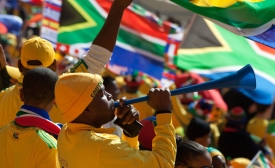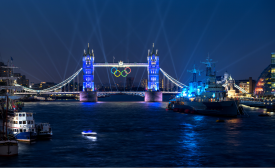sport diplomacy

Rook Campbell on the pitfalls of sport diplomacy.
Only a lucky few North Koreans get the chance to travel out of the country, but the Democratic People's Republic of Korea's (DPRK) first national hearing impaired football team is being given the rare privilege to play their first international friendly game against Australia in Sydney this weekend.

The latest issue of Sport in Society focuses on “Sport and Diplomacy” and explores the interrelationship between international sports and diplomatic studies since they both have a global public dimension to them that can be systematized. The issue features eight articles including:
Arts Minister George Brandis also attended the dinner in the Prime Minister’s private dining room at Parliament House. Mr Abbott told guests that he wanted to learn from the arts sector, and heard a discussion about its successes and challenges. The conversation included the importance of private-sector support for the arts, and the international role of arts organisations in cultural diplomacy.
A Japanese wrestler-turned-politician hopes his vision of "sports diplomacy" can repair his country's fraught relationship with North Korea, as he prepares to host an extraordinary sporting event in Pyongyang. And Kanji "Antonio" Inoki has form: he helped secure the release of Japanese hostages in Iraq in 1990 after impressing tyrant Saddam Hussein, and more recently used his old bouts with Pakistani wrestlers to foster goodwill between the South Asian country and his own.
Roger Kittleson, Brazil expert and Professor of History at Williams College, is interviewed by Bryony Inge about his new book; The Country of Football: Soccer and the Making of Modern Brazil. In this podcast he discusses the relationship between soccer and Brazilian identity, and whether the Brazilian government is likely to use sport as a tool to achieve its policy goals.
Assessing the success of Brazil’s hosting of the World Cup 2014 and Olympic Games 2016 will pivot on more than positive net income metrics and avoiding a stadium infrastructure legacy of white elephants. The aspiration of hosting mega-sport events such as the World Cup is often justified in terms of nation branding. In the case of Brazil, successful nation branding will mean that by hosting a World Cup, Brazil will create and generate certain – hopefully favorable – national images.
The Algerian national football team are to donate their entire World Cup prize fund to the embattled people of Gaza, it has been reported. According to quotes attributed to Algeria’s star striker Islam Slimani, the team will give up all of the estimated $9 million (£5.25 million) they received as valiant losers in the round of 16.







